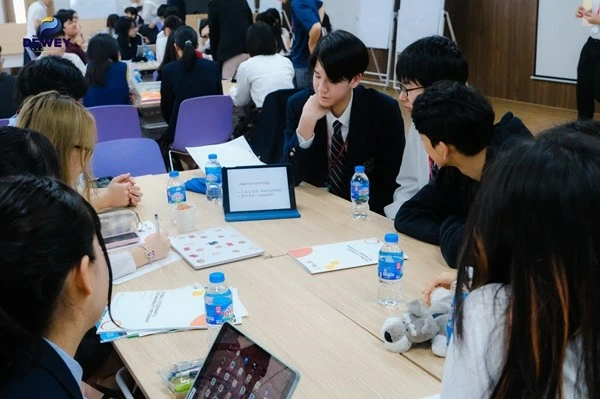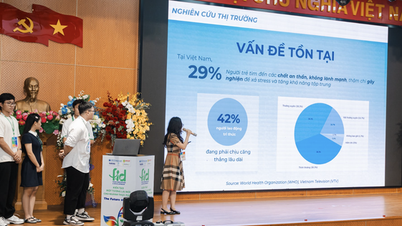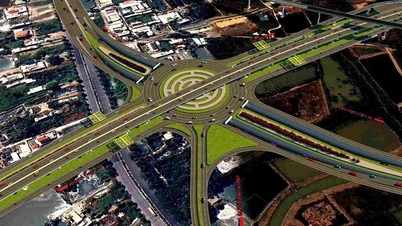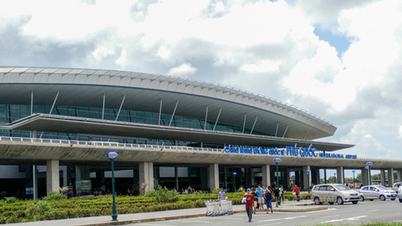To address the current problem of deviant behavior among young people, a comprehensive set of solutions is needed, such as improving the quality of family education through communication about "positive parenting" methods.
 |
| Associate Professor Dr. Tran Thanh Nam believes that the quality of family education needs to be improved by communicating about "positive parenting" methods. (Photo: Provided by the interviewee) |
The current state of deviant behavior among young people.
Deviant behavior is understood as actions that go against the norms and regulations of the community. It can be divided into two types: misguided behavior and unconventional behavior.
Deviant behavior refers to a deviation from what is considered normal and correct. Those who engage in such behavior do not intend to change the values of the norm, but simply violate it for personal gain.
Conversely, deviant behavior is undertaken with the intention of changing norms that individuals themselves reject in practice. They want to replace the old norms with new ones, which they believe to be more correct. Therefore, while those who engage in deviant behavior often intentionally conceal their actions, those who engage in deviant behavior openly demonstrate the value of the new norms.
In our country at the present stage, along with certain social progress achieved thanks to the comprehensive reform process, social evils such as drug trafficking and addiction, prostitution, smuggling, corruption, and criminal offenses have also emerged.
Despite numerous measures to manage the situation, social ills are becoming increasingly widespread and sophisticated. While many social studies have proposed highly effective management approaches and solutions, these efforts remain largely ineffective.
There are many reasons that contribute to deviant behavior among young people.
First, we can consider individual personality traits. Studies on criminal personality traits over many years have shown that these individuals have a history of violating social norms since childhood. In-depth psychological analysis reveals that these individuals have not yet reached the level of logical reasoning equivalent to adulthood. Therefore, they fundamentally lack awareness of the consequences of their actions, particularly exhibiting a lack of empathy and an inability to empathize with others' situations and understand the repercussions of their behavior. Even though they may cause serious consequences, these individuals always rationalize that others have exacerbated them.
Next is the impact of violence and deviant behavior in the media and on the internet. The current social media and media environment is also rife with violence and pornography. Exposure to violent and pornographic scenes in films and on social media can have a significant impact on children's behavior.
Violent and pornographic video games are also a problem leading to violence. Video games increase violent thoughts and feelings and reduce empathetic and understanding behaviors towards others. In particular, if children are drawn into violent games, it can have harmful effects. For teenagers, whose bodies are developing rapidly while their psychology is still very immature and transitioning, lacking experience in social interaction, they are very easily influenced, imitate, and follow the temptations of violent games.
Many children are drawn to and become addicted to violent video games, and when influenced by these images, they can become more aggressive and more likely to become perpetrators or victims of violence in real life. Some children who are addicted to games also suffer severe mental consequences. They participate less in social activities, interact less with others, leading to isolation and feelings of loneliness and lack of friends.
It can be said that prolonged exposure to violence in films, on the internet, and in video games leads to a paralysis of moral and rational behavior. Viewers lose their self-control, making violent behavior more frequent and easier to commit.
Today's youth also tend to abuse alcohol and addictive substances more frequently. Many socially deviant behaviors are carried out under the influence of common addictive substances, including alcohol, drugs, or other prohibited substances.
Alcohol also increases sensitivity to what is perceived as offensive or disrespectful and contributes to uncontrolled violent behavior. Currently in Vietnam, there is no age limit for purchasing alcohol. In fact, addiction also pushes young people deeper into financial pressure and leads them to engage in many other deviant behaviors.
 |
| Positive discipline creates an environment that encourages and supports students. (Illustrative image: Internet) |
Family education plays an important role.
It can be said that family education plays an extremely important role. Parents of children who violate norms often use violence to discipline their children. They also often violate other norms in daily life, such as using foul language and violating traffic laws.
Violent and deviant behaviors exhibited by parents in daily life lead children to accept violence as normal between people. These violent and deviant behaviors of parents are internalized and become behavioral patterns in children.
Due to violent and inappropriate behavior, children are not accepted by their peers, leading to a lack of opportunities to develop skills such as objective problem-solving and interpretation; flexible problem-solving skills; and the ability to recognize other people's emotions.
| "Strengthening coordination among stakeholders is crucial for managing harmful content on media, social networks, and the internet. Courses on safe online living skills, preventing cyberbullying and harassment through technology, are needed in schools." |
Children will continue to label others' behavior as hostile and act in a vengeful manner. Entering puberty, facing physiological changes and psychological instability, children desperately need the attention, guidance, and supervision of adults.
Ideally, parents should be paying more attention and spending more time with their children at this time, but in reality, this is when parents are most lax in managing their children. This is especially true for parents with children who have behavioral problems and academic failures. Exhausted after years of strict but ineffective management, parents often give up at this point, letting their children do whatever they want.
Many parents avoid confronting or talking to their children in order to feel relieved and not be bothered by their children's misbehavior. However, this approach only fuels resentment towards their families, schools, and classmates who look down on them. They will continue to behave in ways that violate social norms.
Behavioral guidance for young people
The question is, what solutions can help reorient the behavior and thinking of young people to minimize deviant behavior? In my opinion, to overcome the current deviant behavior among young people, a comprehensive set of solutions is needed.
Firstly , improve the quality of family education by communicating positive parenting methods. Similarly, teachers also need to learn effective classroom management skills and positive discipline strategies.
Secondly, there is a need for regulations to restore the teaching of character to its rightful place. For example, concrete actions are needed to reinstate the status of Civic Education, Values Education, and Life Skills Education in the general education curriculum to address negative personal psychological factors.
Thirdly, there must be strict control and penalties for cases of possessing, transporting, and trading prohibited substances. Regulations to manage young people's access to alcohol are also needed soon.
Fourth, attention should be paid to developing a community-based mental health care system comprising doctors, clinical psychologists, psychological counselors, and social workers. Establishing professional codes and defining positions for psychologists in hospitals, schools, and organizations is crucial for timely screening, detection, and intervention for individuals experiencing mental health issues.
Fifth, strengthen coordination among stakeholders to manage harmful content on media, social networks, and the Internet. Courses on safe online living skills should be implemented in schools, focusing on preventing cyberbullying and harassment through technology.
Source: https://baoquocte.vn/lam-cha-me-tich-cuc-de-dieu-chinh-hanh-vi-lech-chuan-cua-tre-290254.html
















































































































Comment (0)